82 F. high in the Twin Cities Friday.
83 F. average high on July 31.
84 F. high on July 31, 2014.
August 1, 1955: A thunderstorm in Becker County dumped a foot of rain at Callaway.
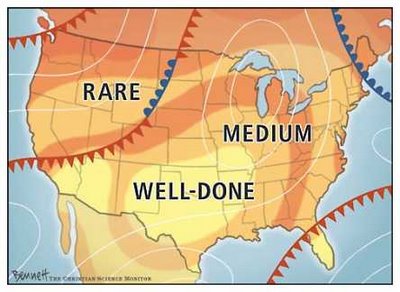 An Unlikely Weather Map
An Unlikely Weather MapWeather
is a deep dive into chaos theory. Computers help but model simulations
only go so far. I've been scratching my head more than usual in 2015.
From extreme drought to raging floods in Texas. A record-setting wet
July across the Midwest; surplus soil moisture helping to depress corn
prices. Record 100-degree-plus heat grips Oregon and Washington state. A
record summer for wildfires in Alaska.
August is prime time for
hurricanes, but Florida has gone nearly a decade (!) without
experiencing one of these fearsome storms. A recent poll suggests 1 in 3
Floridians won't evacuate if a Category 1 hurricane is steamrolling
their way. Crazy. Apathy may breed disaster down the road.
A surge
of moisture coupled with strong wind shear and instability aloft could
spark strong to severe T-storms by evening, especially over the southern
half of Minnesota. I'm just hoping my power stays on this time.
Sunday looks drier with 80s and a light breeze. Longer range guidance hints at a few 70s by late next week.
I'm
a glass-half-full guy but it's been a memorable summer: just warm
enough, not too humid and an almost ideal rainfall pattern for farmers;
just a handful of severe outbreaks. Perfect.
Slight Severe T-storm Risk.
NOAA SPC
has a slight risk of severe thunderstorms later toda over southwestern
Minnesota, the greatest potential for hail and damaging winds south and
west of the Twin Cities. Will the power stay on? Place your bets.
West Coast Heat Wave Threatens All-Time Records. Here's an excerpt from
The Weather Channel: "...
It's
a fitting end to what will be one of the hottest Julys on record in
parts of the Northwest. Seattle, Washington, and Astoria, Oregon, were
both seeing their hottest July on record as of July 29, according to data from the Southeast Regional Climate Center. For
Seattle, July 2015 could beat out August 1967 for the hottest month on
record if the final average temperature for July exceeds 71.1 degrees.
July was the third warmest on record through July 29 in Portland,
Oregon, and fourth warmest on record for Yakima, Washington. High
temperatures at or above 100 degrees are forecast for the Portland, Oregon, area through Friday, with middle to upper 90s expected this weekend..." (Interactive graphic:
AerisWeather).
Crazy-Warm Temperatures Over Southwest Oregon and Northwest California. Cliff Mass provides good perspective on the blazing heat gripping the Pacific Northwest; here's an excerpt: "
How
often do you see temperatures of over 100F at a coastal location, with
cool ( roughly 50F) water close at hand? Well today for one! Let's
head down to the southwest corner of Oregon, near Brookings. This is a
region often called the Banana Belt of Oregon for having
"tropical" temperatures any month of the year. Here is a map showing you
today's maximum temperatures (F) over SW Oregon and NW California. Over
100F AT THE COAST at Brookings and at Gold Beach, just to its north..." (Heat index forecast above: AerisWeather).
Gulf Coast Soaking.
Although model guidance (including the ECMWF) doesn't show any imminent
tropical development, a temporarily stalled frontal boundary focuses
heavy showers and T-storms on the Gulf Coast, with Tampa and Ocala
picking up some 5-6"+ rains over the next 7 days. The heaviest storms
should slosh south of Minnesota into next weekend.
A Tale of Two Seasons.
It will very much feel like summer over the Southwest and southern
Plains into mid-August, but a series of unusually strong storms pushing
across Canada will puff almost September-like air into the Upper
Midwest, Great Lakes and New England, taking the edge off the heat and
humidity. GFS guidance from NOAA goes out 10 days.
A Southwestern Slow Broil.
The 500 mb wind forecast for the evening of August 14 (GFS) shows a
stalled heat-pump high pressure ridge keeping near-record heat from
California and Oregon into the central Plains; some slight relief east
of the Mississippi River. Source: GrADS:COLA/IGES.
What Warming Means for 4 of Summer's Worst Pests. A longer mosquito season in Minnesota? Just what I wanted to hear. Details via
Climate Central; here's a snippet: "...
As
temperatures around the country rise, the areas that are conducive to
such mosquitoes could expand, and the insects could start to emerge
earlier in the year, meaning more opportunities for bites that could spread disease. After an unseasonably warm late spring, summer, and early winter in 2012, the U.S. experienced a West Nile Virus outbreak
linked to the Asian Tiger mosquito, with some 5,600 people becoming
infected. Asian Tiger mosquitoes tend to die off when temperatures
venture outside a range from 50°F to 95°F and when relative humidity
dips below 42 percent. A Climate Central analysis examined how warming
would affect this range for cities around the country, showing how many
more “mosquito suitable” days there were now compared to 1980..."
Interactive Wildfire Map. Here's a resource from
Climate Central,
showing wildfires around the USA. The west coast is bad enough with the
ongoing drought, but check out Alaska, which on this map appears to be a
suburb of hell.
Florida's Extended Hurricane Drought. No hurricanes in nearly 10 years?
The Weather Channel
takes a look at this (historic) quiet spell and a growing sense of
apathy, especially among younger Floridians; here's an excerpt: "...
There's
little doubt that Florida's recent history with hurricanes – or lack of
them, actually – plays a significant role in this. More than 9 1/2
years have passed since the last hurricane to make landfall in Florida
(2005's Hurricane Wilma), by far the longest stretch of consecutive
hurricane-free years for the state since 1851. Previously, the state's
longest hurricane-free streak lasted five years, from 1980 to 1984.
That's especially impressive when you consider the coastline of Florida
spans more than 1,260 miles, and an average of eight hurricanes have
formed each year since 2005. Since Wilma, more than 1 million people have moved to Florida, according to the latest U.S. Census data..."
Hurricane Wilma file image: NOAA.
Record Rains in July. Here's an excerpt of AerisWeather meteorologist D.J. Kayser's excellent
blog post on record rains this month across much of the USA east of the Rockies: "...
Heavy
rain once again fell over parts of the central and southeast United
States, leaving some locations with over 10″ of rain during the month. Indianapolis, IN,
saw their wettest MONTH on record this July, with 13.14″ falling
through July 29th. The previous monthly record for the Crossroads of
America was 13.12″ back in July of 1875. It’s also been wet in parts of
Texas (more on that in a moment) with 8.26″ falling in Abilene, TX, making it the wettest July on record..."
Devastating Floods Might Be More Common Than We Thought, Study Says.
The Los Angeles Times has a summary of recent research; here's an excerpt: "...
But
some of the worst floods in coastal areas are caused by the unfortunate
concurrence of big storm surges with high rainfall – a double-whammy
for flooding, because it can result in the sea spilling over onto land
while rivers and urban drainage systems overflow onto the streets. By
examining these two phenomena together, researchers showed that heavy
precipitation and high seas are occurring in tandem more often in many
coastal cities, especially along the Gulf and Atlantic coasts of the
U.S. The results were published this week in Nature Climate Change...."
Photo credit above: "
The
chances of heavy rainfall and high storm surges occurring in tandem is
increasing, which puts U.S. cities at greater risk of flooding,
researchers say. Above, water flows over the Industrial Canal floodwall
in New Orleans in 2008." (Eliot Kamenitzd / The Times-Picayune via AP).
Younger Floridians Discount Hurricane Threat.
The fact that the USA hasn't experienced a Category 3 or stronger
hurricane in a decade is one factor. Older people remember - and tend to
have respect for hurricanes. But if you've never experienced one?
Here's an excerpt from
The Jacksonville Democrat: "
Those
who experience hurricanes rarely lose their awe for the forces of
nature. Many young people, though, have no idea of the kind of
devastation hurricanes can cause. Those are some of the conclusions that
could be drawn from a July Mason-Dixon poll of Florida residents 10
years after the record breaking summer of hurricanes Katrina, Dennis,
Rita and Wilma. “That millennial group — some of the younger ones were
in elementary school the last time there was a hurricane,” said J. Brad
Coker, managing director of the Mason-Dixon Polling & Research Inc..." (File photo: NASA).
In Microsoft's Nokia Debace, A View of an Industry's Feet of Clay.
Disruption is no longer the exception but the rule. Smart companies are
disrupting themselves (faster) before others do it for them. Here's an
excerpt from
The New York Times: "...
Microsoft
“just couldn’t imagine that a company that was once as strong and
dominant as Nokia could have virtually no value.” He compared the swift
rise of Apple and the withering fortunes of Nokia, BlackBerry and other
once-thriving manufacturers to the arrival of an infectious virus. “We
tend to think the strong will survive,” Mr. Dediu said. “But a virus is a
very small thing that kills big things.” He continued: “It’s easy to
say Microsoft was foolish and blame the chief executive. But when it
happens to everyone, it’s an extinction event. A whole bunch of
companies were disrupted. And it happened in the blink of an eye...” (Image credit
here).
Obama Wants The U.S. To Be At The Forefront of Supercomputer Technology. Call me crazy but this sounds like a pretty good idea to me. Here's an excerpt from
Gizmag: "
President
Obama has signed an Executive Order calling for the US to significantly
up its game in the supercomputer space. The effort, known as the
National Strategic Computer Initiative (NSCI), will aim to build the
world's fastest supercomputer by 2025. The NSCI initiative will be an
multi-departmental research, development and deployment effort focusing
on the creation of a brand new supercomputer. The mission statement is
essentially to make sure that the US has the most capable machine a
decade from now, allowing for high-end computational problem solving in
both the public and private sectors..." (Image: Sam Churchill)
Solar Now Cheaper Than Fossil Fuels For Many Small Businesses.
EcoWatch has the story; here's the intro: "
Solar
power is the fastest-growing sourc eof electricity in the country, and
now mom and pop shops can take part in the boom. Solar panels are
usually seen on the roofs of residential buildings, schools, large
companies or government institutions, but now, SolarCity is expanding
its services to small and medium-sized businesses, or SMRs, the company
announced. This move essentially allows local businesses to cut ties to
their utility and save money against rising electricity costs with
renewable energy..." (photo credit:
flickr).
TODAY: Warm sun, few strong to severe storms by evening? Winds: West 10. High: 84
SATURDAY NIGHT: Strong T-storms possible, some packing hail and high winds. Low: 64
SUNDAY: More sun, isolated T-storm risk. High: 86
MONDAY: Sunny, less humid. DP: 53. Wake-up: 65. High: 82
TUESDAY: Comfortable sunshine. Loving August. Wake-up: 62. High: 80
WEDNESDAY: Partly sunny, probably dry. Wake-up: 62. High: 82
THURSDAY: Sunny intervals, hints of September. Wake-up: 60. High: 79
FRIDAY: Showers and T-storms, some heavy. Wake-up: 61. High: 77
Climate Stories....
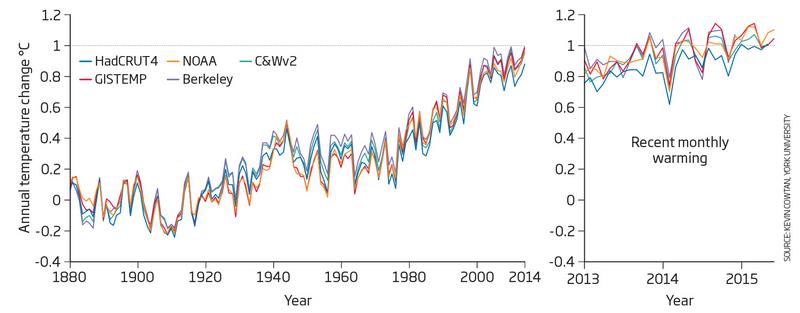 Earth Now Halfway to U.N. Global Warming Limit. New Scientist
Earth Now Halfway to U.N. Global Warming Limit. New Scientist has the details; here's the intro: "
It's
the outcome the world wants to avoid, but we are already halfway there.
All but one of the main trackers of global surface temperature are now
passing more than 1 °C of warming relative to the second half of the
19th century, according to an exclusive analysis done for New Scientist.
We could also be seeing the end of the much-discussed slowdown in surface warming since 1998,
meaning this is just the start of a period of rapid warming. “There’s a
good chance the hiatus is over,” says Kevin Trenberth of the National
Center for Atmospheric Research in Boulder, Colorado..." (Graph credit: Kevin Cowtan of the University of York).
How The Pentagon Is Preparing For Climate Change In Each Part of the World.
The Washington Post takes a look at a recent Defense Department report; here's an excerpt: "
The
Pentagon made the case Wednesday that the locations in the world most
prone to instability and bloodshed also are the ones where climate
change has the greatest impact, and laid out details about how top
regional commanders are preparing for it. A report required by Congress covers
a variety of climate issues affecting the military, noting how rising
seas and severe weather can impact missions. But it also provides
little-known details about how each geographic combatant command — a
COCOM, in military-speak — is addressing climate change in the part of
the world where they oversee operations..."
Photo credit above: "
A
helicopter crew working with the Coast Guard lowers a rescue swimmer
into the Arctic Ocean during a joint search and rescue exercise near
Oliktok Point, Alaska, on July 13." (Photo by Petty Officer 2nd Class Grant DeVuyst/ Coast Guard).
"Force Multiplier".
The world is awash in risk. Climate change adds additional risk to the
equation, with implications for food and water supplies, agriculture,
migration and the potential for revolution (exhibit A: Syria). Here's
more perspective on the Pentagon report from rtcc.org.
Climate Models Are Even More Accurate Than You Thought.
Professional climate deniers like to squawk about how unrelieable the
climate models are in the hands of those "alarmist climate scientists".
It turns out they've been closer to the mark than you might think.
Here's a summary of an article at The Guardian: "...There’s a common myth
that models are unreliable, often based on apples-to-oranges
comparisons, like looking at satellite estimates of temperatures higher
in the atmosphere versus modeled surface air temperatures. Or, some
contrarians like John Christy will only consider the temperature high in the atmosphere,
where satellite estimates are less reliable, and where people don’t
live. This new study has shown that when we do an apples-to-apples
comparison, climate models have done a good job projecting the observed
temperatures where humans live. And those models predict that unless we
take serious and immediate action to reduce human carbon pollution,
global warming will continue to accelerate into dangerous territory..."
Graphic credit above: "
Comparison
of 84 climate model simulations (using RCP8.5) against HadCRUT4
observations (black), using either air temperatures (red line and
shading) or blended temperatures using the HadCRUT4 method (blue line
and shading). The upper panel shows anomalies derived from the
unmodified climate model results, the lower shows the results adjusted
to include the effect of updated forcings from Schmidt et al. (2014)."
*
The Carbon Brief has more perspective on climate models vs. reality and actual performance metrics.
Evangelicals Back Carbon Reduction Plan. Protection for the unborn apparently extends to future generations of unborn as well; here's an excerpt from The Washington Post: "More
than 170 evangelical leaders have sent President Obama a letter backing
a Clean Power Plan that will reduce carbon dioxide emissions from
coal-burning power plants. The plan, which is expected to be released
Monday (Aug. 3), aims to cut carbon pollution by 30 percent from 2005
levels. Coal industry leaders have said the plan will increase costs and
have a minimal effect on climate change. The letter from evangelicals
says that 230,000 “pro-life Christians” have contacted the Environmental
Protection Agency in support of the plan..."
Drought-Hit Forests Store Less Carbon Dioxide Than Thought: Researchers. Here's the intro to a story at
Reuters: "
The
world's forests are taking longer than expected to recover from
increasingly frequent droughts, meaning their ability to store
climate-changing carbon dioxide is smaller than previously thought, Utah
University researchers said on Thursday. If
forests are absorbing less carbon dioxide, then the effects of climate
change will be worse than past models had predicted, the Utah study
published in the journal Science said..." (File image: The Energy Collective).
Jeb Bush: Humans Contribute to Climate Change. Is
the GOP taking baby-steps toward acknowledging the reality of man-made
climate change? It would appear so, based on Jeb Bush's recent
(encouraging) interview with Bloomberg, featured at
TheHill; here's the intro: "
GOP
presidential hopeful Jeb Bush says human activity is contributing to
climate change and the country has an obligation to work to stop it. “I
think it’s appropriate to recognize this and invest in the proper
research to find solutions over the long haul but not be alarmists about
it,” Bush said in an interview published
Thursday with Bloomberg BNA. “We should not say the end is near, not
deindustrialize the country, not create barriers for higher growth, not
just totally obliterate family budgets, which some on the left advocate
by saying we should raise the price of energy so high that renewables
then become viable,” he added..."
Step Outside - Climate Change is Here. Here's an excerpt of an Op-Ed from the Editorial Board at
The Sacramento Bee: "...
if
global warming doesn’t feel like a threat by now, it ought to. Last
week, 16 leading scientists joined the former lead climate scientist for
NASA in warning that glaciers in Antarctica and Greenland could melt 10
times faster than anyone thought. James Hansen, one of the first predictors of climate change – “alarmist and also right,” as Slate called him – reported that the goal we had all been told was safe, limiting global warming to a 2-degree Celsius temperature
increase, actually won’t begin to control the damage. In as little as
50 years, according to the study published last Thursday in the
open-access journal Atmospheric Chemistry and Physics, sea levels may rise 10 feet or more, inundating the world’s coastal cities..."
Before The Time of Global Warming, Spring Sprung Later. Here's a snippet from a story at
Inside Climate News: "...
According
to one of the largest troves of ecological data from the past, living
organisms are already responding to the rise in temperatures from global
warming. By digitizing more than 11,000 records
from the 19th century that chronicled the flowering of plants and
trees, the springtime arrival of migrating birds, and the annual onset
of frog mating calls, researchers at the Hawthorne Valley Farmscape Ecology Program in Harlemville, N.Y. have shown that spring is arriving as much as 14 days early as climate change accelerates..." (File photo: NASA).

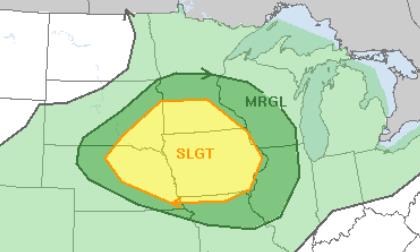
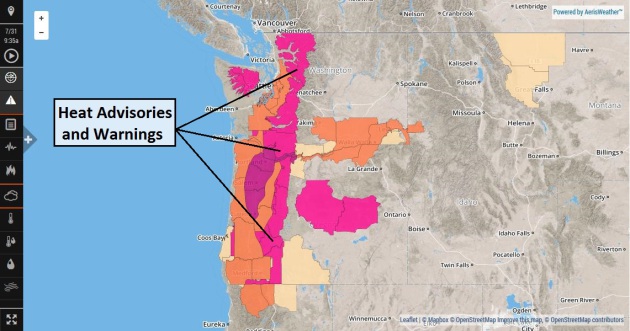
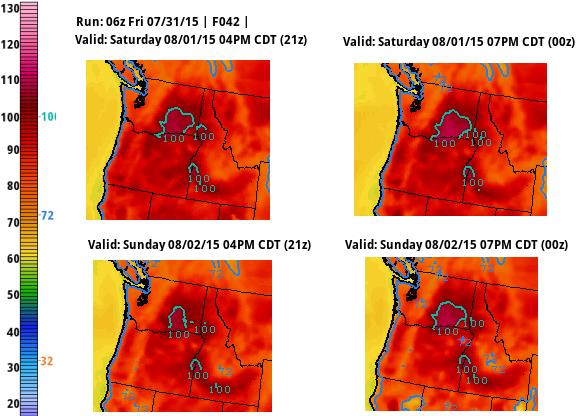
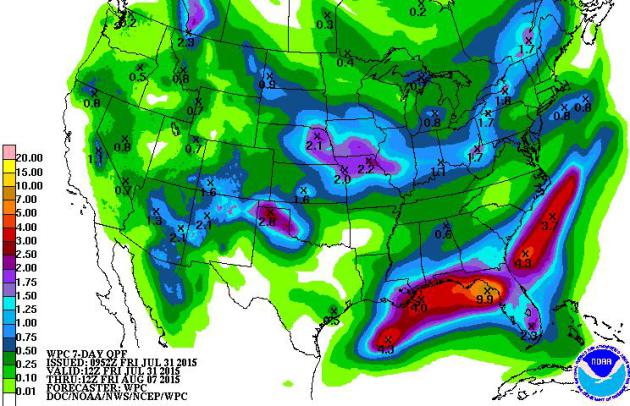
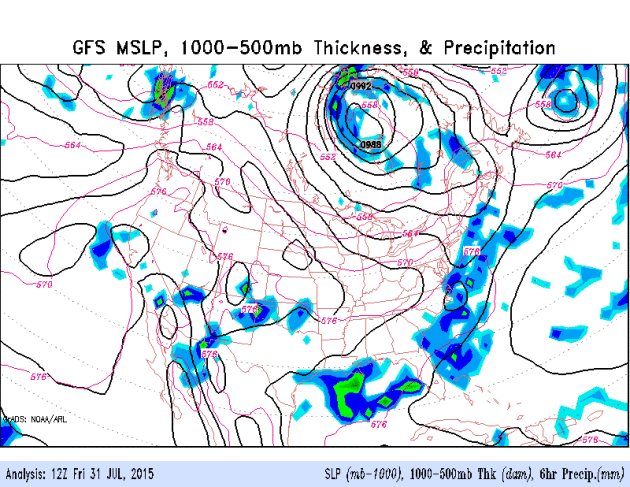
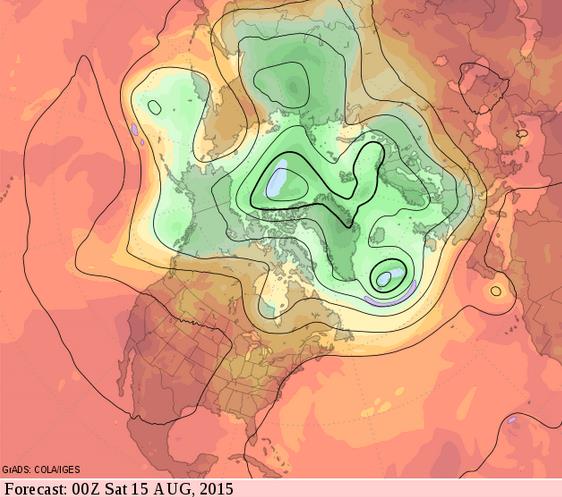
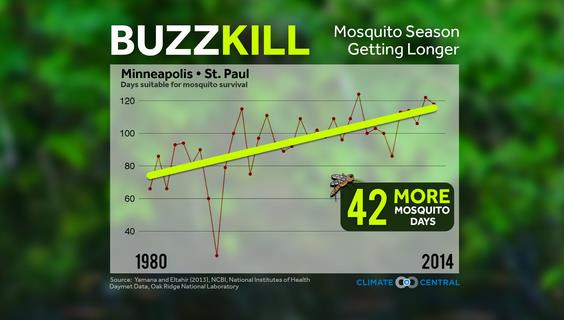
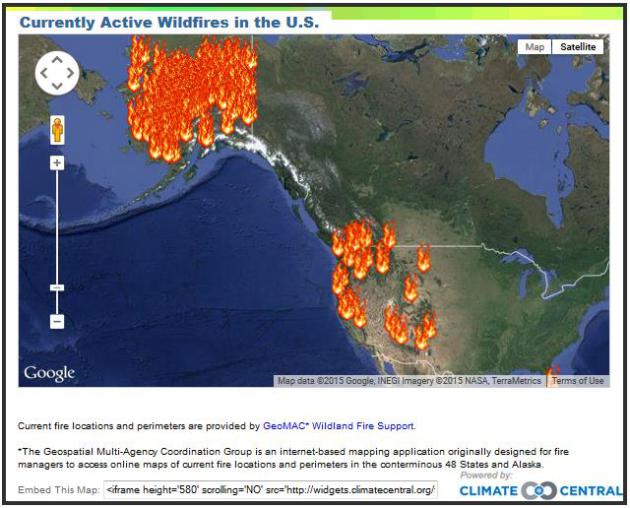
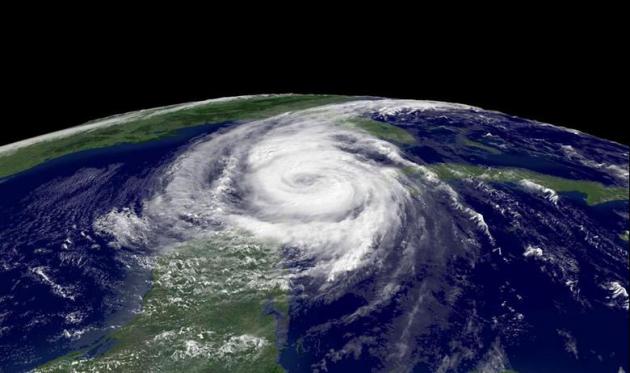
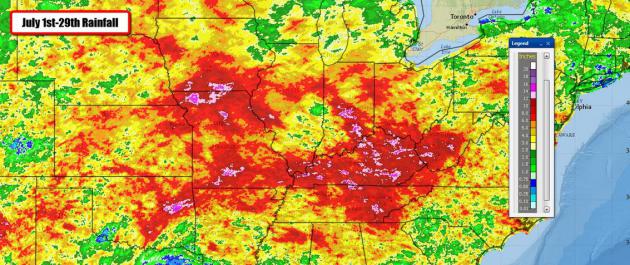
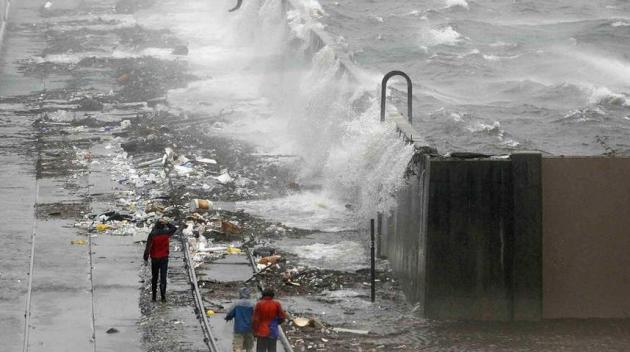
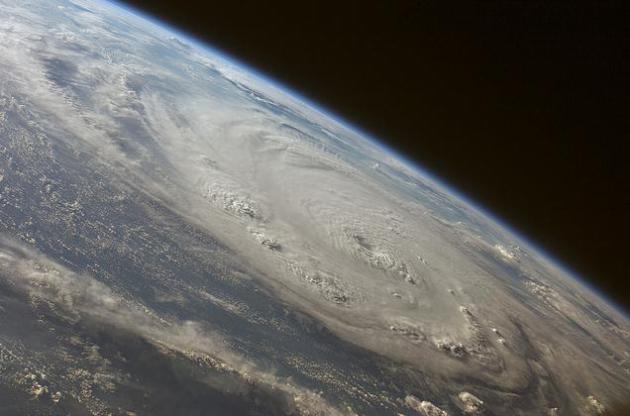


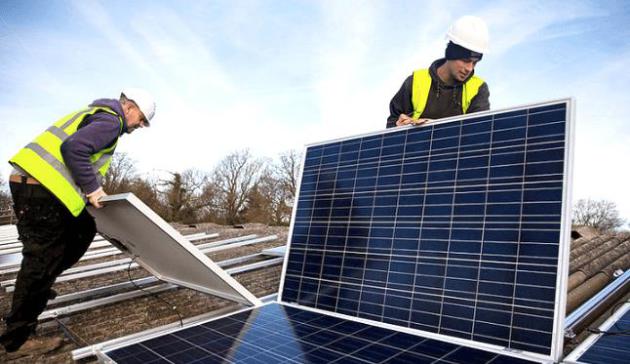

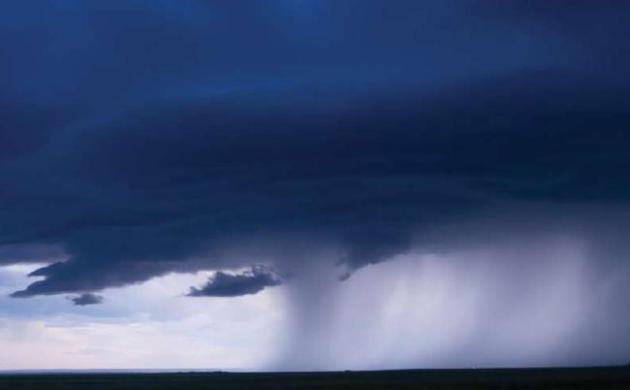

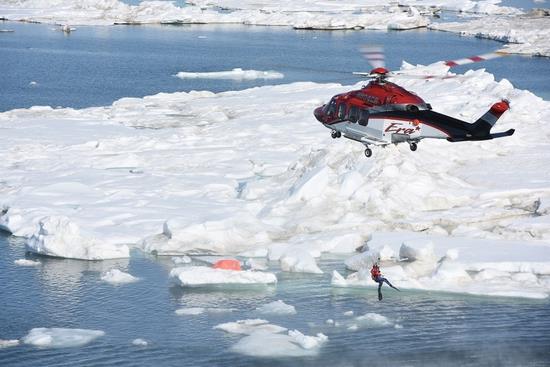

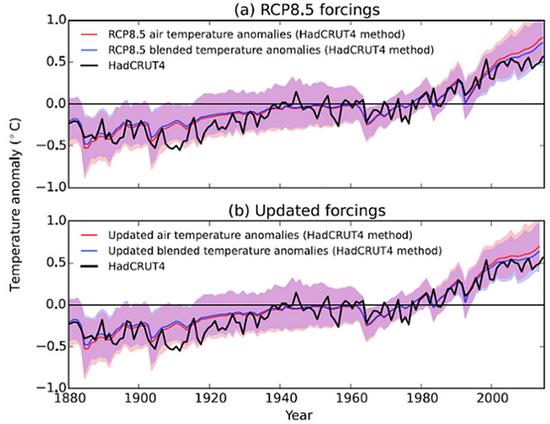

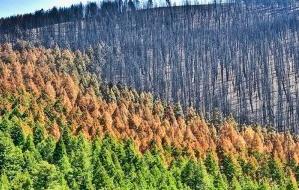

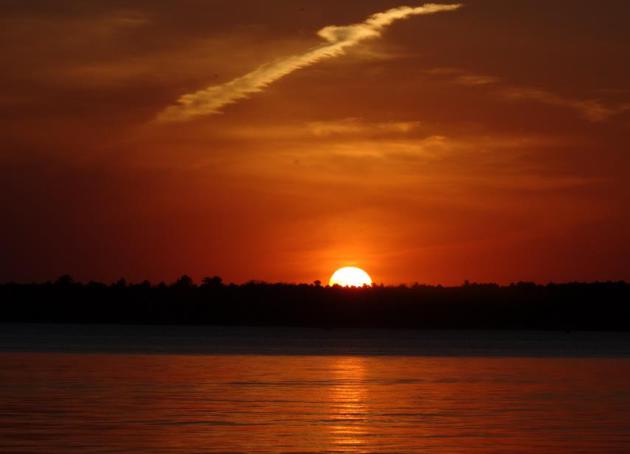
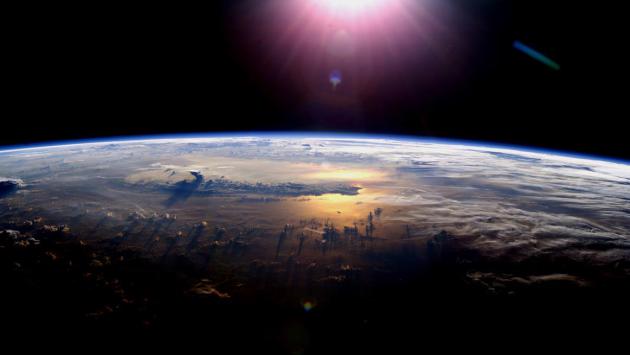
No comments:
Post a Comment